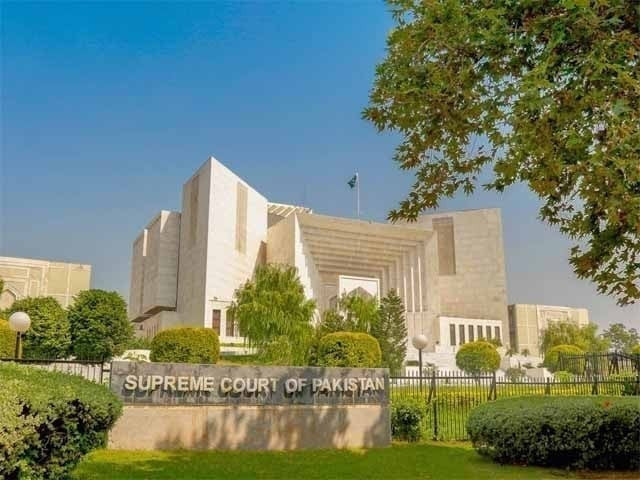SC full court stalls on reserved seats
Despite extensive deliberations, the 13-member full court has yet to reach a consensus on reserved seats judgement.

Despite extensive deliberations, the 13-member full court has yet to evolve a consensus on the much-anticipated judgement in the reserved seats case, a decision with far-reaching implications for national politics.
The full court convened on Wednesday to deliberate a potential short order in the reserved seats case. The outcome will determine whether the current government can gather enough support to table a constitutional amendment bill, a challenging task given its current shortfall in numbers.
In preparation, the federal government has formed a committee to finalise a judicial package. Sources confirmed to The Express Tribune that the government was planning to extend the tenure of all superior court judges by three years.
This amendment would directly benefit Chief Justice of Pakistan (CJP) Qazi Faez Isa, who is set to retire on October 25. However, CJP Isa has already communicated his lack of interest in extending his tenure, a stance he did not publicly declare during the reserved seats case hearings.
Meanwhile, the government appears eager for CJP Isa to continue for an additional two to three years.
Senior lawyers suggest that the primary focus of this order is less on the allocation of reserved seats and more on the proposed constitutional amendment to extend judges’ retirement ages.
It is feared that the judicial politics surrounding this decision is also anticipated to escalate.
The proposed amendment would set the retirement age for Supreme Court judges at 68 and for high court judges at 65.
On the other hand, the Pakistan Tehreek-e-Insaf (PTI) has expressed mistrust in CJP Isa. Notably, the Election Commission of Pakistan (ECP), the executive branch, and CJP Isa share a unified stance towards PTI.
During the judges’ meeting on Wednesday, a compromise was likely suggested to achieve a unanimous decision. However, it remains unclear whether a majority of the judges align with CJP Isa’s opinion.
There is significant concern over the delay in announcing the short order, with expectations that a decision will be made within the current week.
The Election Commission of Pakistan (ECP) had allocated 78 seats among various Previously, the ECP allocated 78 reserved seats to various political parties in the national and provincial assemblies.
However, on May 6, the apex court suspended the ECP’s notification regarding this allocation, leading to a divide in opinions. All judges agree that the ECP, by misinterpreting the apex court’s January 13 order, deprived PTI of these seats.
The full court remains divided on whether the SC should award these seats to PTI under Article 184(3) and Article 187 of the Constitution.
During previous hearings, most judges have questioned the distribution of the 78 reserved seats to other parties.
There is also a consideration that if these seats are not allocated to other parties, the majority judgement might rule that the seats remain vacant, interpreting two-thirds as two-thirds of the elected members, not the total number of National Assembly seats.



1725254039-0/Untitled-design-(24)1725254039-0-208x130.webp)















COMMENTS
Comments are moderated and generally will be posted if they are on-topic and not abusive.
For more information, please see our Comments FAQ